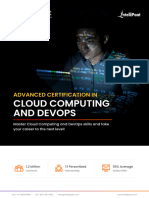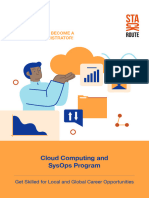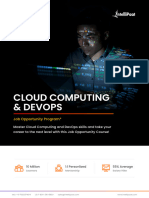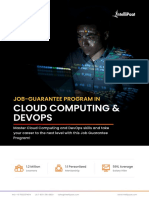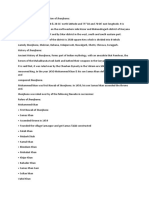0% found this document useful (0 votes)
10 views30 pagesIIT Cloud Devops
The Executive Certification in Cloud & DevOps program, offered in collaboration with E&ICT Academy IIT Guwahati, is designed for IT professionals and engineers with at least one year of experience. The 8-month program includes hands-on training in cloud technologies, DevOps practices, and Generative AI, culminating in a certification from IIT Guwahati. Participants will benefit from project-based learning, mentorship from industry experts, and career support services to enhance their career prospects in high-demand roles.
Uploaded by
Deepak DeepuCopyright
© © All Rights Reserved
We take content rights seriously. If you suspect this is your content, claim it here.
Available Formats
Download as PDF, TXT or read online on Scribd
0% found this document useful (0 votes)
10 views30 pagesIIT Cloud Devops
The Executive Certification in Cloud & DevOps program, offered in collaboration with E&ICT Academy IIT Guwahati, is designed for IT professionals and engineers with at least one year of experience. The 8-month program includes hands-on training in cloud technologies, DevOps practices, and Generative AI, culminating in a certification from IIT Guwahati. Participants will benefit from project-based learning, mentorship from industry experts, and career support services to enhance their career prospects in high-demand roles.
Uploaded by
Deepak DeepuCopyright
© © All Rights Reserved
We take content rights seriously. If you suspect this is your content, claim it here.
Available Formats
Download as PDF, TXT or read online on Scribd
/ 30












